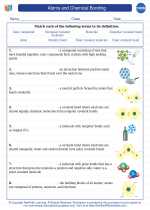Eubacteria: An Overview
Eubacteria, also known as true bacteria, are prokaryotic organisms that are found in various environments on Earth. They are single-celled organisms that lack a nucleus and membrane-bound organelles. Eubacteria play a crucial role in many ecological processes such as nutrient cycling, decomposition, and symbiotic relationships with other organisms. They come in a wide range of shapes, sizes, and metabolic capabilities, making them incredibly diverse and adaptable.
Characteristics of Eubacteria
- Cell Structure: Eubacteria have a cell wall composed of peptidoglycan, a complex polymer that provides structural support.
- Metabolism: They exhibit diverse metabolic pathways, including photosynthesis, chemosynthesis, and various forms of respiration.
- Reproduction: Eubacteria reproduce asexually through binary fission, where a single cell divides into two identical daughter cells.
- Genetic Material: Their genetic material is found in a single, circular chromosome located in the nucleoid region of the cell.
Ecological Importance of Eubacteria
Eubacteria are essential for sustaining life on Earth. They are involved in processes such as nitrogen fixation, where they convert atmospheric nitrogen into a form that can be used by plants. Additionally, eubacteria are key players in the decomposition of organic matter, aiding in the recycling of nutrients in ecosystems.
Human Interactions and Applications
Eubacteria have both positive and negative impacts on human life. While some eubacteria can cause diseases, many others are beneficial and are used in various industrial processes, such as the production of antibiotics, food fermentation, and bioremediation.
Study Guide
When studying eubacteria, it's important to focus on the following key points:
- Understand the basic structure and characteristics of eubacteria cells.
- Explore the diverse metabolic pathways exhibited by eubacteria.
- Learn about the ecological roles of eubacteria in nutrient cycling and symbiotic relationships.
- Examine the positive and negative impacts of eubacteria on human life.
- Consider the industrial applications of eubacteria in fields such as medicine, food production, and environmental management.
By mastering these concepts, you'll gain a comprehensive understanding of eubacteria and their significance in the natural world.
[Eubacteria] Related Worksheets and Study Guides:
.◂Chemistry Worksheets and Study Guides High School. Atoms and Chemical Bonding
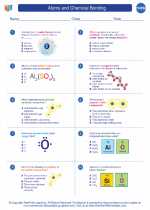
 Worksheet/Answer key
Worksheet/Answer key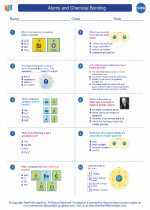
 Worksheet/Answer key
Worksheet/Answer key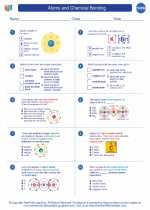
 Vocabulary/Answer key
Vocabulary/Answer key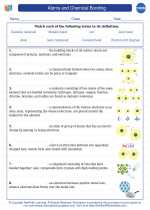
 Vocabulary/Answer key
Vocabulary/Answer key